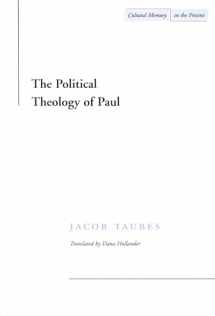
The Political Theology of Paul (Cultural Memory in the Present)
Book details
Summary
Description
This highly original interpretation of Paul by the Jewish philosopher of religion Jacob Taubes was presented in a number of lectures held in Heidelberg toward the end of his life, and was regarded by him as his “spiritual testament.” Taubes engages with classic Paul commentators, including Karl Barth, but also situates the Pauline text in the context of Freud, Nietzsche, Benjamin, Adorno, Scholem, and Rosenzweig. In his distinctive argument for the apocalyptic-revolutionary potential of Romans, Taubes also takes issue with the “political theology” advanced by the conservative Catholic jurist Carl Schmitt. Taubes’s reading has been crucial for a number of interpretations of political theology and of Paul―including those of Jan Assmann and Giorgio Agamben―and it belongs to a wave of fresh considerations of Paul’s legacy (Boyarin, Lyotard, Badiou, Zîzêk). Finally, Taubes’s far-ranging lectures provide important insights into the singular experiences and views of this unconventional Jewish intellectual living in post-Holocaust Germany.


We would LOVE it if you could help us and other readers by reviewing the book
Book review



